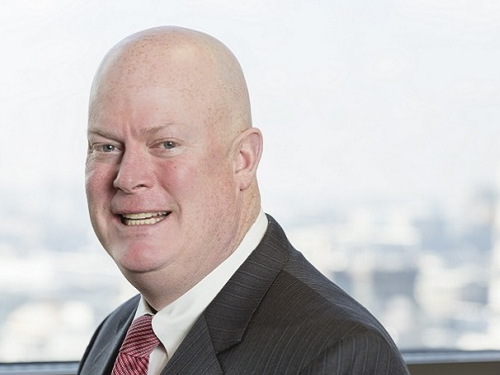Speaking at today’s IUMI (International Union of Marine Insurance) annual conference, Sean Dalton, Chair of IUMI’s Cargo Committee reported the majority of marine cargo markets geographically can best be described as “hard” or “improving” amid significant change.
In its annual statistical update, IUMI reported global cargo insurance premiums to be US$16.5 billion in 2019. Although a 1.5% reduction on the previous year, exchange rates, trade and other market conditions make direct comparisons with previous years challenging. However, there are indicators that loss ratios in 2019 are starting to improve.
The COVID-19 pandemic has caused unprecedented disruption to the global economy and world trade affecting manufacturing, supply chain and demand. This has a direct impact on exposures insured including volume, accumulations in port and aboard vessels. However, to date there has been minimal loss activity as cargo insurance policies provide coverage for physical loss or damage and most policies do not provide coverage for delay, loss of market, or inherent vice. Cargo insurance professionals including underwriters, brokers, claims and risk engineering have responded extremely well to the challenges of COVID-19 while working through significant market corrections that pre-dated the pandemic.
Changes in the cargo insurance market include a return to exposure underwriting. This has resulted in underwriters improving technical rate adequacy and better matching coverage offerings with exposures. Insurers are more judicious in deploying their capacity as they seek to better balance their portfolios. The quality and relevance of information is markedly improved. While insureds experience the result in the form of increased premiums and reduced coverage, in many cases these have been lessened due to decreased exposures.
Dalton commented “In the past 12 months there have been a number of large cargo losses. These include the tragic explosion in the Port of Beirut, a significant loss to a distribution facility impacted by the Nashville tornadoes, and the total loss of 4,200 vehicles aboard the Golden Ray. The Beirut Port explosion is troubling on many fronts and it is important to note that this is the second time in five years (Port of Tianjin explosion in 2015) that a port has been destroyed by an explosion involving hazardous materials. These underscore the important work that IUMI is doing to drive for improvements in the transport of dangerous goods and comes after the record number of cargo vessel fire losses in 2019.”
To address emerging exposures 2020 has seen the introduction of new cargo coverage wordings including clauses for Cyber and also wordings for Communicable Disease. Market associations including the Joint Cargo Committee (JCC) in London and the American Institute of Marine Underwriters (AIMU) have promulgated unbinding proposals for wordings in the past year that are available for use.
Dalton continued “In considering the challenges facing our sector, we must first recognize the personal loss, disruption and human suffering resulting from COVID-19. Most practitioners have been working remotely for six months and doing a remarkable job in a rapidly changing market. Most aspects of daily work have been impacted. Challenges are plenty, ranging from remediating portfolios to addressing skill gaps. The environment will get more difficult with lower interest rates and investment losses putting even more pressure on underwriting results. Behaviours drive results and these are sound.”
“Opportunities are also on the horizon as cargo returns to specialized underwriting. There will be an economic recovery and global trade will play a major role. Cargo insurance is a key enabler and insurers in this line will emerge healthier and in a position to provide the solutions their customers need. The changes taking place are not about “going backwards” but rather finding a sound way forward in the “new normal” and to contribute to making our business better and sustainable.”










